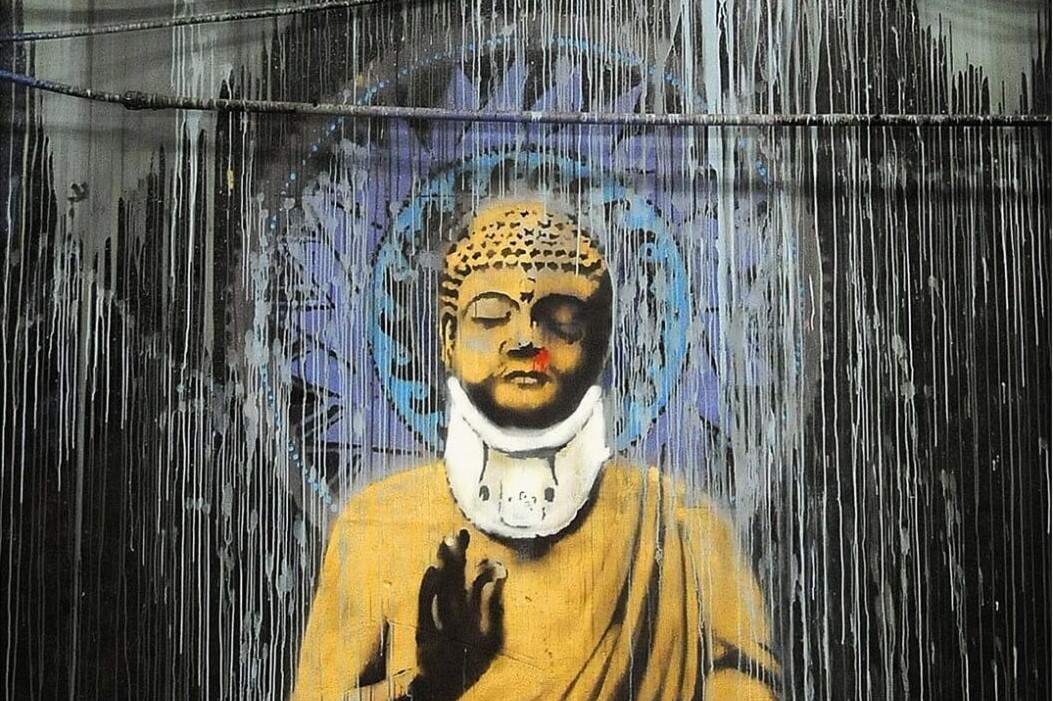After the havoc of COVID-19 (which has not technically ended) and renewed self-reflection by many in the field of Buddhist Studies after 2020, there is a new mood in many scholarly communities that I am in contact with. There is a sense that Buddhist Studies needs rethinking and reforming if it is to make progress as a scholarly field. How the voices of marginalized scholars, contingent faculty, and graduate students can be amplified, and how alternative and productive futures for the field can be imagined inclusively, are concerns that have led Prof. Natalie Gummer, professor of religious studies at Beloit College in Wisconsin, to establish an online initiative called the Collective Buddhist Studies Manifesto (CBSM) in collaboration with Frances Garrett, Natalie Avalos, Ann Gleig, Sarah Jacoby, and others. The website of the CBSM is currently inviting interested contributors to send their own manifesto, which should explore questions of Buddhist Studies’ future, challenging the status quo, or tending to toxic legacies in the field.
She has also proposed a session that will be presented at the 2021 American Academy of Religion (AAR) session, “Manifestos for Buddhist Studies,” on 21 November 12:30–14:30 on Zoom.
Visit the website here and contribute your voice and submit your personal manifesto (guidelines are included). Submissions will be published on this website with the support of The Robert H.N. Ho Family Foundation Centre for Buddhist Studies at the University of Toronto.
In this lead-up conversation with me to the session on the 22nd, Prof. Gummer explores more about what the CBSM is about.
Buddhistdoor Global (BDG): Not too long ago, Engaged Buddhism, Buddhist Ethics, and other interdisciplinary studies were seen as sub-fields in Buddhist Studies, largely separate from other fields unless exegesis or hermeneutics were involved. I see that the manifesto markedly emphasizes an ethical tone in approaching the field. How does this manifesto differ from the values in Buddhist academia that you could identify from 20 or so years ago (or before this sea change happened)?
Natalie Gummer (NG): I am responding to your questions from my own perspective as the proposer of the event, and a collaborator with others in inviting contributions to the “collective Buddhist studies manifesto.” While there is no singular manifesto, you are certainly right to observe a strong ethical emphasis in the questions we posed to prospective contributors. If there’s one thing that I anticipate most (probably not all) of the contributions will agree on, it’s greater appreciation for and inclusion of the diverse ways in which the academic study of Buddhism may be conducted and the diverse voices that should have a place in that study. The questions we posted in our call reflect those values, as your questions recognize. But we have yet to hear what contributors will say, and they are unlikely to agree with one another.
I don’t think these are new values (for instance, the critique of colonial knowledge production and its legacy in the field has been around for several decades), but I do think that the manifestos panel and the “collective Buddhist studies manifesto” are part of a larger trend toward questioning established norms and hierarchies in Buddhist studies. What forms of knowledge are granted relevance and legitimacy in the field, and who gets to decide?
These are ethical questions as well as epistemological questions, as you note, and the “manifestos” project invites visions for the future of the field inclusive both of scholars from a broader range of geographical and institutional locations and of the broader range of approaches, questions, and topics that those scholars might contribute.
BDG: Buddhist Studies is present in many institutions around the world. Although Western institutions might dominate prestige rankings, not all non-Western institutions, such as the Thai or Indian universities, might have the same priorities as expressed in the manifesto. How would you propose being more inclusive and non-Western centric while not compromising on the manifesto’s ideals?
NG: The “collective Buddhist studies manifesto” does not exist yet, but one of its central aims is precisely to amplify voices that are too often marginalized in Buddhist studies. Since the manifesto is collective, its “ideals” will emerge from the contributions we receive; the call asks people to articulate their vision for the future of the field, so anyone who is engaged in Buddhist studies can contribute, no matter where they may be located or what their particular approach to the study of Buddhism may be.
I just hope the word gets out to people in places other than North America and Europe. We are still accepting contributions.
BDG: If one were to think ambitiously, what needs to transpire in the next few years for the manifesto and the AAR session/others to be seen as a long-term success?
In terms of the manifesto (whether the panel or the website), no single set of goals exists, such that I could extrapolate what long-term success would look like. In many ways, the goal is simply to make the multiplicity of visions for the field visible, and to embolden people who may not fit traditional norms to claim their space in the field and speak out. That’s how things might begin to shift in a positive way—but I wouldn’t want to put too much weight on any one event or project. There are a number of different things happening right now, and I think it requires a combined effort on several fronts to lead to longer-term changes.
See more
Collective Buddhist Studies Manifesto


